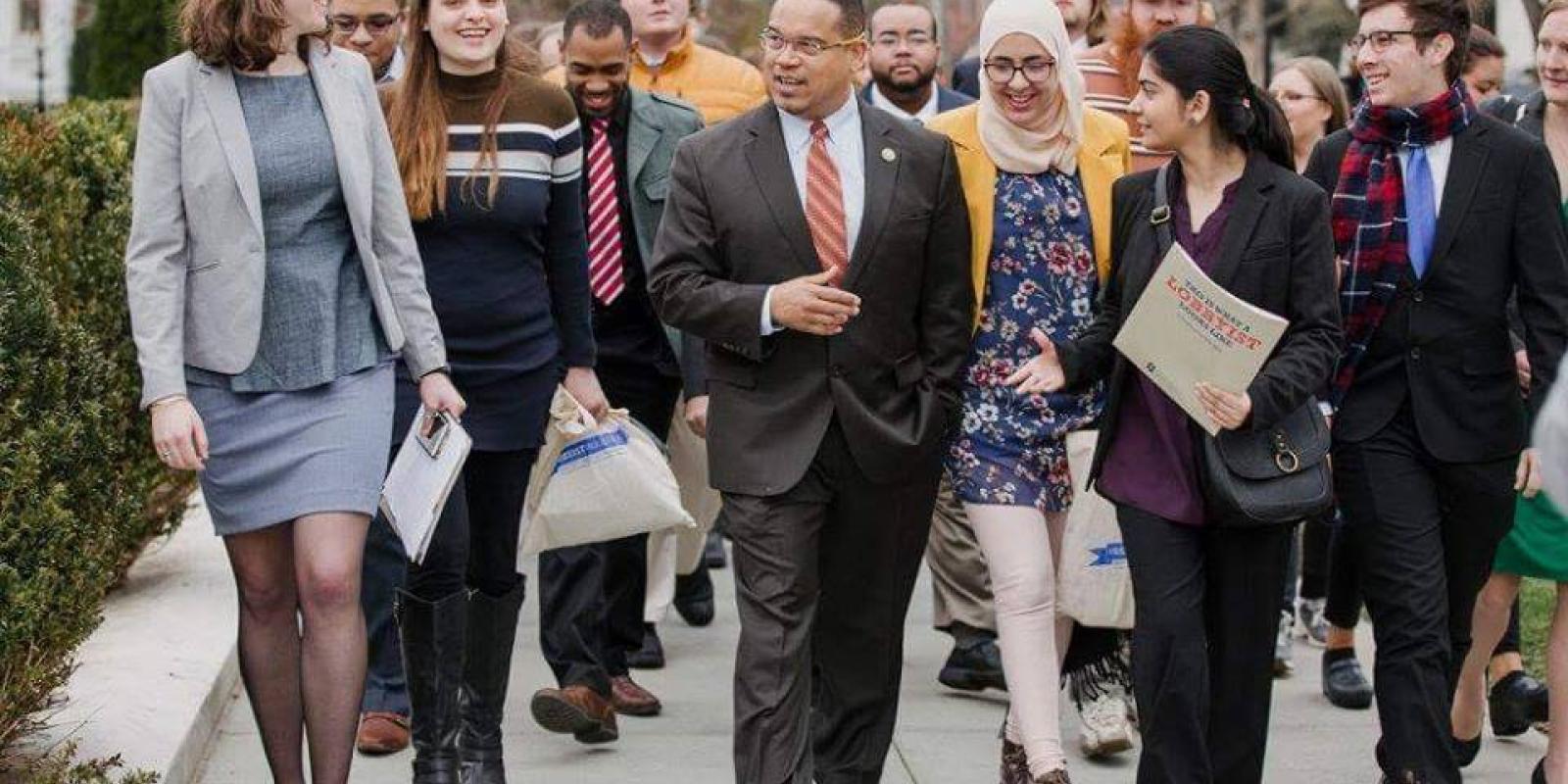
From Algeria to Egypt, Arizona: How Internationalism Shapes Identity
Algiers, Cairo, Arizona, mathematics, comparative religion, Ataba Square, the Women’s March, U.S. Congress.
These may strike one as an odd combination, but these words define the past three years of international student Yasmine Bouguerche’s life.
With a slideshow of photographs, Bouguerche, who is majoring in mathematics and minoring in computer science and comparative religion, gave a lecture titled “My Intercultural Study-Abroad Experience,” expressing how embracing cultures can shape one's identity. “Identity is traditions, personality, values and aspirations," she reflected. "I consider myself to be Algerian – Berber and Arab. I have French and Turkish culture. Identity is shaped by civilizations and vice versa. I spent a lot of time in Egypt, and it has become part of who I am."
As a recipient of the Tomorrow’s Leaders Scholarship, the Algerian student chose to attend AUC for her international studies, hand-picking the University out of the many choices available. "I knew that it would be more beneficial for me," she said. "I really wanted to discover Egypt and Egyptian society."
Exploring Egyptian Society
Bouguerche describes her first semester at AUC in 2014, and in Egypt, as a culture shock. “I had a lot of expectations coming to Egypt, and I think that added to the intensity of my culture shock,” she recalled.
After spending two weeks as a tourist in Cairo, she had to face the reality of creating a routine. “It took me about a semester, and then I realized what was happening wasn’t a negative thing at all, it was a normal phase I had to go through.”
The more she mingled with other international students on campus, the more she recognized how common her feelings were. “I realized it was up to me to see Egypt and to get to know Egyptians," she asserted. "The country was not going to serve itself and what it has to offer on a silver platter."
Bouguerche slowly exposed herself to different parts of Egypt, celebrating her first Eid Al-Adha in Cairo, traveling to Saint Catherine in South Sinai, and visiting the Mortuary Temple of Hatshepsut in Luxor. Participating more in activities around Cairo, she provided support for TEDx Cairo University, guided international attendees as a committee member for the Maker Faire Cairo event, and joined the Cairo Runners, with whom she ran her first marathon.
Engaging further with Egyptian community, she tutored young children from Manshiyet Nasser in math and English. “I got to see how people think, how they suffer and what we can do to help them,” she said. “I got to see how different classes of Egyptians go on with their everyday lives.”
Just as she started settling in and creating a niche for herself, she was hit with yet another life-changing opportunity. By January, she was America-bound, to attend the University of Arizona (UA), one of the top 100 schools in the world, for one semester under the Tomorrow’s Leaders Scholarship Program.
Traveling to Tucson
“Egypt prepared me for the homesickness and dealing with it,” said Bouguerche, remembering her travels to Arizona.
At UA, Bouguerche took an eye-opening interfaith religion course taught by renowned history professor, Susan Karant-Nunn, and continued to learn about religion outside of the classroom. “I attended an interfaith celebration held for a Jewish holiday, where pastors and imams were invited,” she recalled. “Everyone was comfortable with their religion. It created a positive atmosphere for religious exchange.”
Even though she started her studies at UA midyear in January, she was able to join the women’s ultimate frisbee B-team. “I loved it because I lived the American student life through that team and learned about the student body’s ideas and aspirations,” she said.
Bouguerche’s engagement continued when she participated in the Women’s March in Tucson, calling for reform and equality. “The city was so small, but 20,00 people showed up advocating for issues that are real and universal,” she stated. “What surprised me was that most of those present were not directly affected, but they came out in solidarity.”
Under another fully funded scholarship with the Friends Committee on National Legislation, Bouguerche was even able to advocate for health care reform. “They brought a group of students from all states to teach them about a dominant problem and how to lobby,” she explained. Through this rewarding experience, she grasped a tangible problem in American society.
As the only student representing Arizona in the lobbying process, Bouguerche worked alongside influential American politicians, such as Keith Ellison, the first Muslim to be elected to the U.S. Congress, and Senator John McCain. “The bill we lobbied against did not pass, so our work and results were fruitful,” she said.
Differences Shaping Identities
Through these experiences, Bouguerche enjoyed noticing several American and Egyptian similarities. In terms of differences, she was baffled by the respect for queues and her 17-hour car ride in the United States, during which she did not hear a single honk.
Nonetheless, her favorite places and cities seem to be in Egypt. “My favorite parts of Cairo are El Azbakeya and Ataba Square," she noted. "It is chaotic, but there is so much beauty and genuineness in the chaos -- and very knowledgeable book vendors. In all of Egypt, I love Aswan. The people are kind, the culture is rich and the weather is perfect.”
While many think AUC is separate from Egyptian society, Bouguerche rebuttals, “People here eat ful and ta’amiya on campus, too,” she said. “In my image of Cairo, AUC is part of it.”
